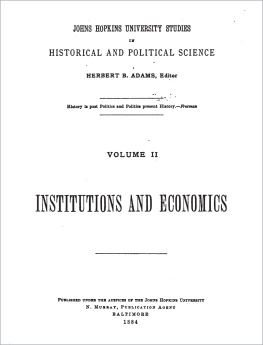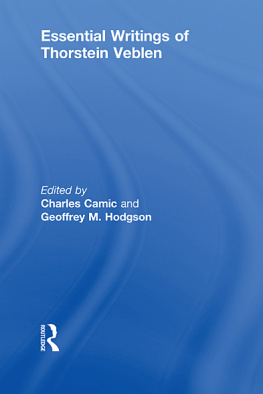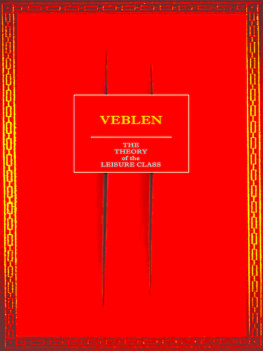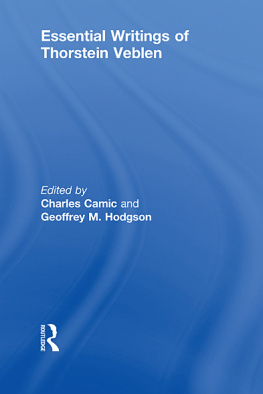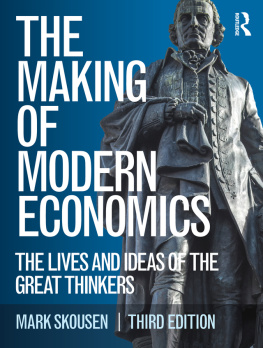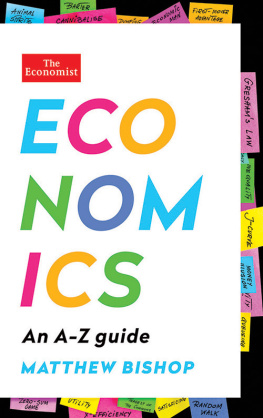Charles Camic - Veblen: The Making of an Economist Who Unmade Economics
Here you can read online Charles Camic - Veblen: The Making of an Economist Who Unmade Economics full text of the book (entire story) in english for free. Download pdf and epub, get meaning, cover and reviews about this ebook. publisher: Harvard University Press, genre: Romance novel. Description of the work, (preface) as well as reviews are available. Best literature library LitArk.com created for fans of good reading and offers a wide selection of genres:
Romance novel
Science fiction
Adventure
Detective
Science
History
Home and family
Prose
Art
Politics
Computer
Non-fiction
Religion
Business
Children
Humor
Choose a favorite category and find really read worthwhile books. Enjoy immersion in the world of imagination, feel the emotions of the characters or learn something new for yourself, make an fascinating discovery.
- Book:Veblen: The Making of an Economist Who Unmade Economics
- Author:
- Publisher:Harvard University Press
- Genre:
- Rating:3 / 5
- Favourites:Add to favourites
- Your mark:
- 60
- 1
- 2
- 3
- 4
- 5
Veblen: The Making of an Economist Who Unmade Economics: summary, description and annotation
We offer to read an annotation, description, summary or preface (depends on what the author of the book "Veblen: The Making of an Economist Who Unmade Economics" wrote himself). If you haven't found the necessary information about the book — write in the comments, we will try to find it.
Veblen: The Making of an Economist Who Unmade Economics — read online for free the complete book (whole text) full work
Below is the text of the book, divided by pages. System saving the place of the last page read, allows you to conveniently read the book "Veblen: The Making of an Economist Who Unmade Economics" online for free, without having to search again every time where you left off. Put a bookmark, and you can go to the page where you finished reading at any time.
Font size:
Interval:
Bookmark:
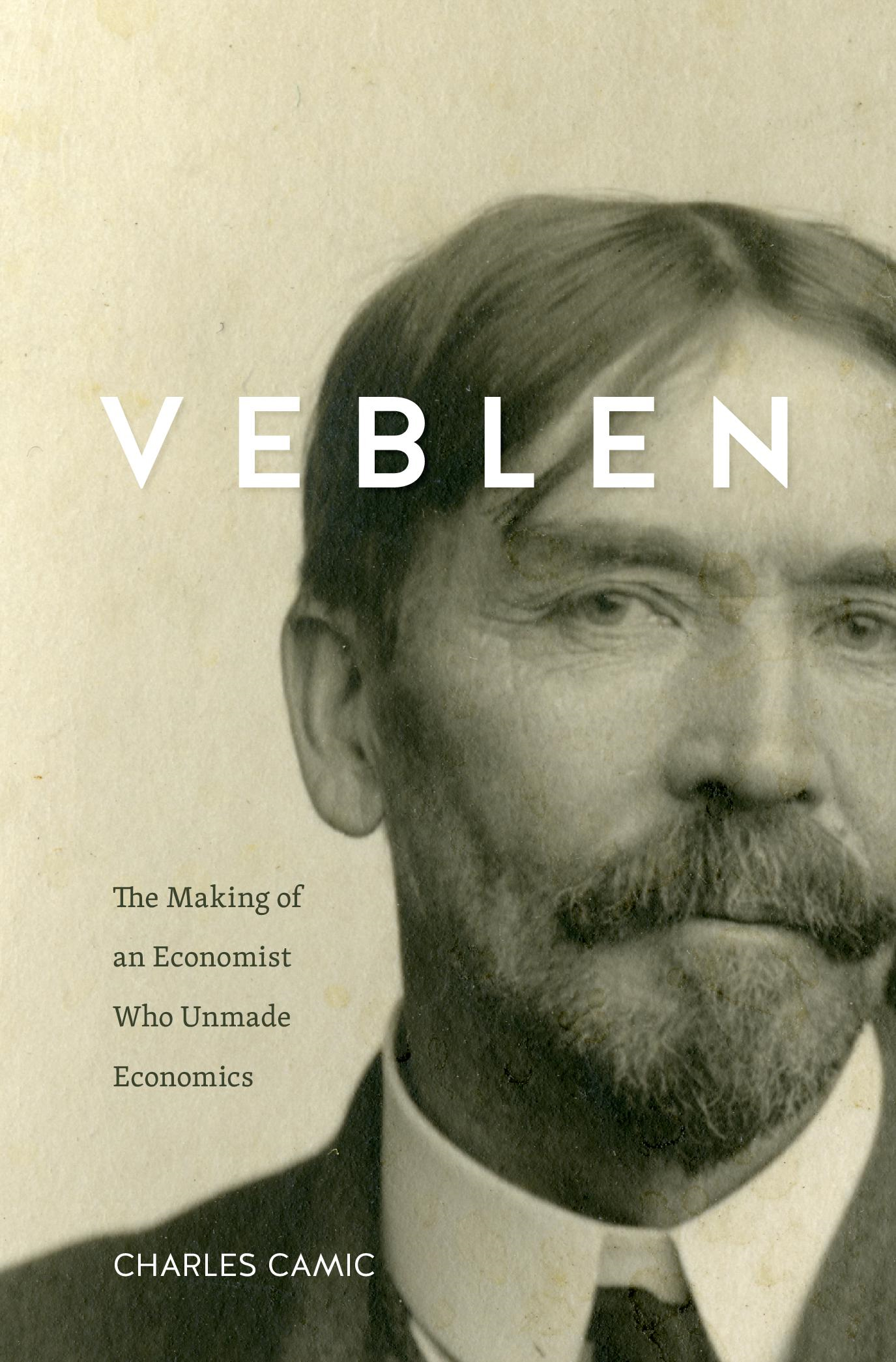
VEBLEN
The Making of an Economist Who Unmade Economics
CHARLES CAMIC
HARVARD UNIVERSITY PRESS
Cambridge, Massachusetts
London, England
2020
Copyright 2020 by the President and Fellows of Harvard College
ALL RIGHTS RESERVED
Cover design by Tim Jones
Cover photograph courtesy of Carleton College archives
ISBN 978-0-674-65972-8 (hardcover)
978-0-674-25068-0 (EPUB)
978-0-674-25069-7 (MOBI)
978-0-674-25071-0 (PDF)
The Library of Congress has cataloged the printed edition as follows:
Names: Camic, Charles, author.
Title: Veblen : the making of an economist who unmade economics / Charles Camic.
Description: Cambridge, Massachusetts : Harvard University Press, 2020. | Includes bibliographical references and index.
Identifiers: LCCN 2020018113
Subjects: LCSH: Veblen, Thorstein, 18571929. | EconomicsUnited StatesHistory. | Exploitation. | Leisure class. | United StatesEconomic conditions.
Classification: LCC HB119.A2 C266 2020 | DDC 330.092 [B]dc23
LC record available at https://lccn.loc.gov/2020018113
to Caroline and Susannah
&
to Beth
E conomic news and information are the stuff of everyday life in the United States and around the world today. Smartphones ping alerts about the latest figures for unemployment and housing starts within seconds of their monthly release by government agencies; news media headline trade accords, executive compensation packages, and the interest rate policies of the Federal Reserve Board; editorial writers describe the data and statistical techniques of economists from Harvard and the Paris School of Economics; and we are all engulfed by the regular outpouring of information on oil prices, averages on the Nasdaq and Nikkei stock indexes, consumer confidence levels, and the price tag of government programs. To imagine our atmosphere purified of these elements is to warp ourselves into another galaxy.
Our forebears, going back a century and a half, would easily recognize our situation, not in fine detail of course, but certainly in its broad outlines. As the United States and the nations of Western Europe industrialized in the second half of the nineteenth century, their elites and citizens were on the watchthough with fewer quantitative tracking measures than we now haveclosely attuned to tariff regulations, the currency standard, railway rates and surcharges, court rulings on the structure of corporations, the prices of summer and winter wheat, and the division of shares of the countrys wealth. On these issueswhich filled the national newspapers, urban immigrant newspapers, and local town papershinged the outcomes of high-stakes electoral contests.
Yet no more than now did raw economic data then speak for themselves. Almost without exception, the brute facts arrived before the public prepackaged, accompanied with an intellectual guidebook as to their meaningwith an interpretation that served to convert the voiceless information about the economy into economic knowledge. And, perhaps predictably, these interpretations ranged widely in content, some deeply tinted by the agendas of sharply divided political and social groups, others wanting to maintain more distance from the intergroup conflicts of the age. All the same, whether they preferred a hands-on or arms-length style of intervention into the public arena, most economic writers, including most occupants of the newly established position of the academic economist, had problems closer to home to deal with at the same time. These were their recurring struggles with one another over the proper manner in which to interpret the bare facts of economic life in order to produce the right kind of economic knowledge.
A mild-mannered lion in these struggles over economic knowledge was Thorstein Veblen. Preeminent British economist (and near-miss Nobelist) Joan Robinson once categorized Veblen as the most original economist born and bred in the USA; and her encomiumone of scores of similar tributes paid to Veblen over the past 125 yearsinvites a fundamental question about the relationship between new forms of economic knowledge and the life of the intellectual innovator. This book pursues that question through a historical study of the connection between Thorstein Veblens economic ideasthe distinctive type of economic knowledge he createdand how he was born and bred intellectually.
THE PROCESS OF VEBLENS coming-into-being as an economist was a prolonged one, which lasted from the preCivil War period until the final decade of the nineteenth century. Described by present-day historians as the era of the making of modern America, these years witnessed massive immigration to the country by northern Europeans, the settlement of the prairies of the Midwest and the mechanization of agriculture, explosive urbanization and industrialization, and the metamorphosis of the countrys institutional infrastructure. Veblen was closely aware of all these changes. Not yet the abstractions of historical monographs, they roiled the places where he lived, as he made his wayby the unbridled invention of the age, the railroadfrom a Norwegian immigrant community in rural Minnesota to long-settled areas of the East Coast, and then to Chicago, which (with a population of more than a million and a half) was already the nations Second City, as well as the locus of its meatpacking, grain, and lumber industries, its emerging corporate form of capitalist enterprise, and its devices for stimulating mass consumption. Every one of these great historical developments threaded through Veblens life experiences, and all of them feature in his fin de sicle writings.
Even so, everyday experiences are multilayered and concatenated, and for much of the time from his boyhood until the end of the nineteenth century Veblen viewed the panorama of his age through the windows of classrooms, at a succession of schools where he was a star student. Initially those schools were local, though with a twist; for, just by luck, Carleton Collegenewly founded but already academically well-equippedwas only a few miles from his familys farm, so Carleton was where his parents sent him when he finished common school. Then, following his college graduation, Veblen entered graduate school, studying at four of the leading American universities of the period, one, Yale University, antique but undergoing major intellectual renovation, the other threeJohns Hopkins University, Cornell University, and the University of Chicagoepicenters of the transformation in higher education that had recently begun in the United States. Not only this, but it was for the explicit purpose of advancing his education that Veblen left the farmstead and moved several times afterward; the forceful pull of the university and the attraction of particular professors occasioned all the major geographical moves he made (except for a timeout back home due to illness).
In the course of all these moves, Veblen gradually became an economist, and a highly original one. Economics was not his intended destination; at the outset, Veblen aspired to a career as a philosopher, but this plan proved temporary, and soon he was reconsidering his options. One purpose of this book, then, is to follow his intellectual journey step by step, examining Veblens pivot into economics and his transformation into an innovative economic thinker as he proceededamid the swirling economic and social changes of his agefrom the local schoolhouse to Carleton College, Johns Hopkins, Yale, Cornell, and the University of Chicago.
Font size:
Interval:
Bookmark:
Similar books «Veblen: The Making of an Economist Who Unmade Economics»
Look at similar books to Veblen: The Making of an Economist Who Unmade Economics. We have selected literature similar in name and meaning in the hope of providing readers with more options to find new, interesting, not yet read works.
Discussion, reviews of the book Veblen: The Making of an Economist Who Unmade Economics and just readers' own opinions. Leave your comments, write what you think about the work, its meaning or the main characters. Specify what exactly you liked and what you didn't like, and why you think so.

